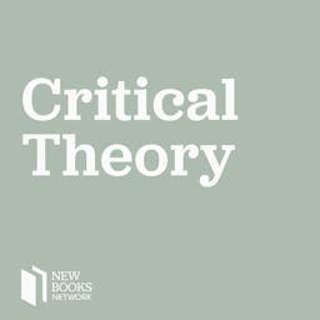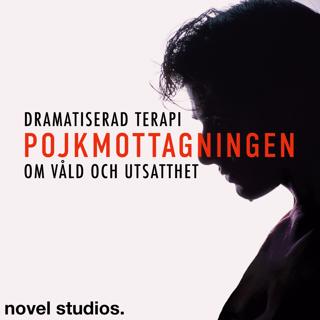
Kerry Gottlich, "From Frontiers to Borders: How Colonial Technicians Created Modern Territoriality" (Cambridge UP, 2025)
How did modern territoriality emerge and what are its consequences? From Frontiers to Borders: How Colonial Technicians Created Modern Territoriality (Cambridge UP, 2025) examines these key questions with a unique global perspective. Kerry Goettlich argues that linear boundaries are products of particular colonial encounters, rather than being essentially an intra-European practice artificially imposed on colonized regions. He reconceptualizes modern territoriality as a phenomenon separate from sovereignty and the state, based on expert practices of delimitation and demarcation. Its history stems from the social production of expertise oriented towards these practices. Employing both primary and secondary sources, From Frontiers to Borders examines how this expertise emerged in settler colonies in North America and in British India – cases which illuminate a range of different types of colonial rule and influence. It also explores some of the consequences of the globalization of modern territoriality, exposing the colonial origins of Boundary Studies, and the impact of boundary experts on the Paris Peace Conference of 1919–20. Dr Kerry Goettlich is an International Relations scholar whose work draws on original historical research to reframe theoretical debates about international politics, particularly around issues of territory and borders. His current work deals with the history of the legal and moral prohibition of territorial conquest. He is an associate professor at City St George's, University of London. Morteza Hajizadeh is a Ph.D. graduate in English from the University of Auckland in New Zealand. His research interests are Cultural Studies; Critical Theory; Environmental History; Medieval (Intellectual) History; Gothic Studies; 18th and 19th Century British Literature. YouTube Channel: here Learn more about your ad choices. Visit megaphone.fm/adchoices Support our show by becoming a premium member! https://newbooksnetwork.supportingcast.fm/critical-theory
14 Jan 1h 14min

Angie Hobbs, "Why Plato Matters Now" (Bloomsbury, 2025)
Does Plato matter? An ancient philosopher whose work has inspired and informed countless thinkers and poets across the centuries, his ideas are no longer taught as widely as they once were. But, as Angie Hobbs argues in this clear-sighted book Why Plato Matters Now (Bloomsbury, 2025), that is a mistake.If we want to understand the world we live in – from democracy, autocracy and fake news to celebrity, cancel culture and what money can and cannot do – there is no better place to start than Plato. Exploring the intersection between the ancient and the modern, Professor Hobbs shows how Plato can help us address key questions concerning the nature of a flourishing life and community, healthcare, love and friendship, heroism, reality, art and myth-making. She also shows us how Plato's adaptation of the Socratic method and dialogue form can enable us to deal with contested issues more constructively.Plato's methodology, arguments, ideas and vivid images are explained with a clarity suitable both for readers familiar with his work and for those approaching Plato for the first time. This book shows why Plato really matters, now more than ever. Angie Hobbs is emerita Professor of the Public Understanding of Philosophy at the University of Sheffield. She gained a degree in Classics and a PhD in Ancient Philosophy at the University of Cambridge, and her chief interests are in ancient philosophy and literature, and ethics and political theory from classical thought to the present, and she has published widely in these areas, including Plato and the Hero. She works in a number of policy sectors, and contributes regularly to media around the world, including many appearances on In Our Time on Radio 4; she has spoken at the World Economic Forum at Davos, the Athens Democracy Forum, the Houses of Parliament, the Scottish Parliament and Westminster Abbey and been the guest on Desert Island Discs and Private Passions. Website here Morteza Hajizadeh is a Ph.D. graduate in English from the University of Auckland in New Zealand. His research interests are Cultural Studies; Critical Theory; Environmental History; Medieval (Intellectual) History; Gothic Studies; 18th and 19th Century British Literature. YouTube Channel: here Learn more about your ad choices. Visit megaphone.fm/adchoices Support our show by becoming a premium member! https://newbooksnetwork.supportingcast.fm/critical-theory
14 Jan 1h 18min

Mercedes Valmisa, "All Things Act" (Oxford UP, 2025)
All Things Act explores the collective character of action to expand the ways we think about agency. First, it resists viewing agency as a capacity, much less one exclusive to humans. Instead, it defines agency as an umbrella term for the concrete sociomaterial processes that emerge from the collaborative efforts of multiple entities acting together. Agency isn't the faculty of an individual entity or self; it's always the function of a network or assembly of actors. Second, many of the actors involved in these processes are nonhuman-things without intentions, will, or even awareness. This relational and collective approach adopts a conception of action that doesn't hinge on mental states. To act is to participate in, contribute to, shape, facilitate, organize, constrain, and modify the course of events. This book argues that there's no such thing as an individual action and that agency is collectively distributed across a heterogeneous field of human and nonhuman actors. For readers interested in the link between quantum physics and relational metaphysics, please check out this recorded talk, especially Rovelli's linked here You can also check out his book Helgoland. For a more detailed analysis of why substance metaphysics fail us, see, The Non-Existence of the Real World. For readers interested in wuwei (non-coercive self-organizing communities in nature), please check out Honeybee Democracy, Biocivilisations, and FLUKE. About the urgency of building a non-cruel optimism, check out the classic critique of neoliberal individualism: Cruel Optimism and Psychopolitics and Burnout society. Learn more about your ad choices. Visit megaphone.fm/adchoices Support our show by becoming a premium member! https://newbooksnetwork.supportingcast.fm/critical-theory
13 Jan 56min

Dagmar Herzog, "The New Fascist Body" (Wirklichkeit Books, 2025)
The success of new far-right movements cannot be explained by fear or rage alone – the pleasures of aggression and violence are just as essential. As such, racism is particularly intense when it is erotically charged, migration presenting as a sexual threat to white women being one of many examples. Germany’s strikingly successful right-wing political party Alternative für Deutschland is, according to the historian Dagmar Herzog, characterized by this “sexy racism,” with its second main feature being that of an obsessive hostility to disability – both elements resonating strongly with Nazism. In The New Fascist Body, Herzog connects her analysis of fascism’s libidinous energy with its animus against bodies perceived as imperfect. Only by studying the emotional and intellectual worlds of past fascisms can we understand and combat their current manifestations. The book features an afterword by Alberto Toscano, author of Late Fascism: Race, Capitalism and the Politics of Crisis (Verso 2023). Lisa Schmidt-Herzog is a Berlin-based writer and researcher. Her academic work focuses on the biopolitics of medical standardization and the influence of cultural and ethico-political norms on mental health and illness. She is interested in the historicity of scientific concepts and subject-centered approaches to health and illness, and examines the radical thought of theorists and practitioners such as Georges Canguilhem, Frantz Fanon, and Erich Wulff. For NBN’s Critical Theory channel, she focuses on medical pluralism, the relationship between health and resistance, and the pragmatics of healing. Learn more about your ad choices. Visit megaphone.fm/adchoices Support our show by becoming a premium member! https://newbooksnetwork.supportingcast.fm/critical-theory
13 Jan 1h 4min

Matthijs Lok, "Europe Against Revolution: Conservatism, Enlightenment, and the Making of the Past" (Cambridge UP, 2023)
Contemporary Europe seems to be divided between progressive cosmopolitans sympathetic to the European Union and the ideals of the Enlightenment, and counter-enlightened conservative nationalists extolling the virtues of homelands threatened by globalised elites and mass migration. Europe Against Revolution: Conservatism, Enlightenment, and the Making of the Past (Cambridge UP, 2023) seeks to uncover the roots of historically informed ideas of Europe, while at the same time underlining the fundamental differences between the writings of the older counter-revolutionary Europeanists and their self-appointed successors and detractors in the twenty-first century. In the decades around 1800, the era of the French Revolution, counter-revolutionary authors from all over Europe defended European civilisation against the onslaught of nationalist revolutionaries, bent on the destruction of the existing order, or so they believed. In opposition to the new revolutionary world of universal and abstract principles, the counter-revolutionary publicists proclaimed the concept of a gradually developing European society and political order, founded on a set of historical and - ultimately divine - institutions that had guaranteed Europe's unique freedom, moderation, diversity, and progress since the fall of the Roman Empire. These counter-revolutionary Europeanists drew on the cosmopolitan Enlightenment and simultaneously criticized its alleged revolutionary legacy. Throughout the nineteenth and twentieth centuries, these ideas of European history and civilisation were rediscovered and adapted to new political contexts, shaping in manifold ways our contested idea of European history and memory until today. Matthijs Lok, Senior Lecturer in Modern European History, Universiteit van Amsterdam Morteza Hajizadeh is a Ph.D. graduate in English from the University of Auckland in New Zealand. His research interests are Cultural Studies; Critical Theory; Environmental History; Medieval (Intellectual) History; Gothic Studies; 18th and 19th Century British Literature. YouTube channel. Twitter. Learn more about your ad choices. Visit megaphone.fm/adchoices Support our show by becoming a premium member! https://newbooksnetwork.supportingcast.fm/critical-theory
12 Jan 56min

J. Logan Smilges, "Crip Negativity" (U of Minnesota Press, 2023)
In the thirty years since the Americans with Disabilities Act was signed into law, the lives of disabled people have not improved nearly as much as activists and politicians had hoped. In Crip Negativity (U of Minnesota Press, 2023), J. Logan Smilges shows us what’s gone wrong and what we can do to fix it. Leveling a strong critique of the category of disability and liberal disability politics, Smilges asks and imagines what horizons might exist for the liberation of those oppressed by ableism—beyond access and inclusion. Inspired by models of negativity in queer studies, Black studies, and crip theory, Smilges proposes that bad crip feelings might help all of us to care gently for one another, even as we demand more from the world than we currently believe to be possible. J. Logan Smilges (they/them) is assistant professor of English language and literatures at the University of British Columbia and author of Queer Silence: On Disability and Rhetorical Absence (Minnesota, 2022). Clayton Jarrard is a Research Project Coordinator at the University of Kansas Center for Research, contributing to initiatives at the nexus of research, policy implementation, and community efforts. His scholarly engagement spans the subject areas of Cultural Anthropology, Queer Studies, Disability Studies, Mad Studies, and Religious Studies. Clayton is also a host for the Un/Livable Cultures podcast. Learn more about your ad choices. Visit megaphone.fm/adchoices Support our show by becoming a premium member! https://newbooksnetwork.supportingcast.fm/critical-theory
10 Jan 57min

Caitlin Vincent, "Opera Wars: Inside the World of Opera and the Battles for Its Future" (Simon and Schuster, 2026)
How can cultural industries survive in the twenty-first century? In Opera Wars Inside the World of Opera and the Battles for Its Future Caitlin Vincent, a Senior Lecturer in Creative Industries at the University of Melbourne, examines the past, present and future of Opera to understand how music, performance, institutions and audiences battle to support this artform. Drawing on a wealth of research, as well as personal experience as a performer, librettist and entrepreneur, the book discusses key controversies over scores and staging, demands for changes to casting and working conditions, as well as companies’ and audiences’ resistance to change. Engaging and witty, the book is essential reading for arts, humanities and social science scholars, as well as for anyone interested in the future of arts and music. Learn more about your ad choices. Visit megaphone.fm/adchoices Support our show by becoming a premium member! https://newbooksnetwork.supportingcast.fm/critical-theory
9 Jan 40min

Keidrick Roy, "American Dark Age: Racial Feudalism and the Rise of Black Liberalism" (Princeton UP, 2024)
Though the United States has been heralded as a beacon of democracy, many nineteenth-century Americans viewed their nation through the prism of the Old World. What they saw was a racially stratified country that reflected not the ideals of a modern republic but rather the remnants of feudalism. American Dark Age reveals how defenders of racial hierarchy embraced America’s resemblance to medieval Europe and tells the stories of the abolitionists who exposed it as a glaring blemish on the national conscience.Against those seeking to maintain what Frederick Douglass called an “aristocracy of the skin,” Keidrick Roy shows how a group of Black thinkers, including Frances Ellen Watkins Harper, Hosea Easton, and Harriet Jacobs, challenged the medievalism in their midst—and transformed the nation’s founding liberal tradition. He demonstrates how they drew on spiritual insight, Enlightenment thought, and a homegrown political philosophy that gave expression to their experiences at the bottom of the American social order. Roy sheds new light on how Black abolitionist writers and activists worked to eradicate the pernicious ideology of racial feudalism from American liberalism and renew the country’s commitment to values such as individual liberty, social progress, and egalitarianism.American Dark Age reveals how the antebellum Black liberal tradition holds vital lessons for us today as hate groups continue to align themselves with fantasies of a medieval past and openly call for a return of all-powerful monarchs, aristocrats, and nobles who rule by virtue of their race. Keidrick Roy is Assistant Professor of Government at Dartmouth College. He has received national attention through media outlets such as CBS News Sunday Morning and the Chicago Review of Books and appears in the HBO documentary Frederick Douglass: In Five Speeches. He has curated two major exhibitions at the American Writers Museum in Chicago on Black American figures, including Frederick Douglass, Ida B. Wells, and Ralph Ellison. Morteza Hajizadeh is a Ph.D. graduate in English from the University of Auckland in New Zealand. His research interests are Cultural Studies; Critical Theory; Environmental History; Medieval (Intellectual) History; Gothic Studies; 18th and 19th Century British Literature. YouTube channel. Twitter. Learn more about your ad choices. Visit megaphone.fm/adchoices Support our show by becoming a premium member! https://newbooksnetwork.supportingcast.fm/critical-theory
8 Jan 51min





















